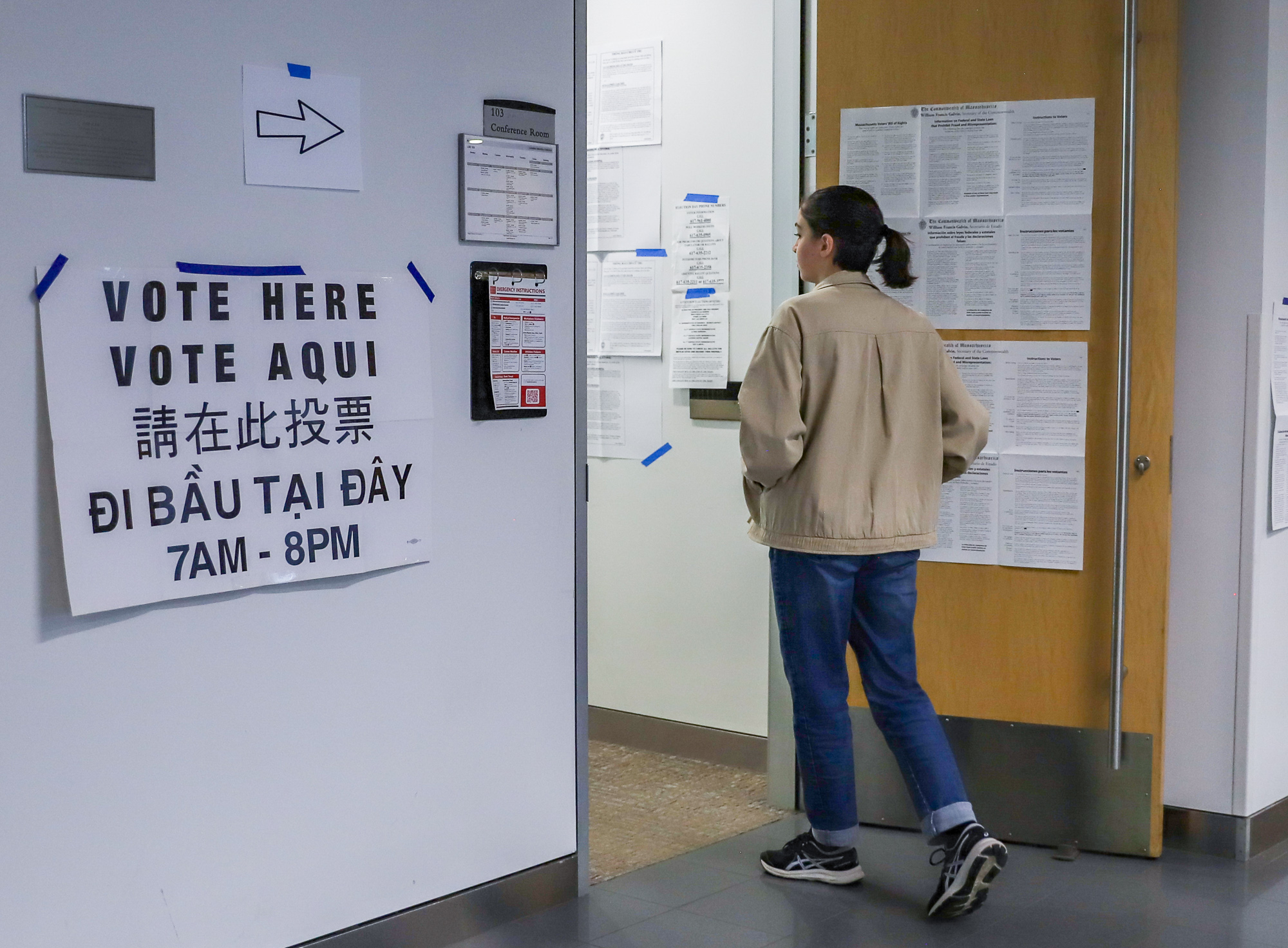College students across Boston are attempting to foster civil political discourse after a student group alleged that conservative students faced “escalating attacks” on campus in the weeks since Donald Trump was re-elected president.

The Boston College Republicans executive board published an op-ed in The Heights, BC’s student newspaper, on Nov. 10, five days after the election. The piece expressed concern over “intimidation and hate speech,” such as identifying students who voted for Trump as racists.
The board encouraged respectful political discourse and fewer “ad-hominem attacks,” citing a well-known Jesuit education slogan that incentivizes being “men and women for others.”
“Being men and women for others requires us to be open to growth, loving and committed to justice,” the board wrote. “In the wake of the election results, there is a growing disconnect between this mission on campus and the actions and words promulgated within the community.”
Massachusetts is the most liberal state in 2024, according to the World Population Review.
Boston is also home to more than 60 colleges and universities. In 2022, the Center for the Study of Partisanship and Ideology reported that of students at elite American universities, Democrats outnumber Republicans by a 55-23 margin.
Although Boston universities are overwhelmingly blue, Republican students are speaking out.
Six days before the election, Boston University freshman Colin Sharpe wrote an op-ed for BU Today titled “Student POV: Why I’m Voting for Donald Trump.”
Sharpe said he received negative responses in the comments and hateful emails, but the backlash did not bother him.
“A lot of people are liberal,” he said. “They are very emotionally invested in it, and that’s to be expected. It’s politics.”
Regarding the BC Republicans op-ed, Sharpe said he doesn’t think it’s “productive for conservatives to claim that they’re being discriminated against.”
However, Sharpe said he is concerned that BU College Republicans was not listed as an official student organization on Terrier Central this semester, even though the group meets and operates on University property.
Amanda Lohnes, president of the BU College Republicans, said the club lost its status as an official organization over the summer. She was notified Thursday the club will be reactivated for the spring semester.
Lohnes said BUCR was deactivated because “there was a box we didn’t check” when re-registering with the Student Activities Office. When she emailed to fix the error, SAO said there was nothing the organization could do.
Lohnes said she believes SAO’s dismissiveness is related to the club’s political leaning.
“It always seems to be 10 times more difficult for our club than it is for other clubs,” Lohnes said.
In past years, BUCR members faced harassment, including death threats and stalking, for expressing conservative views, Lohnes said.
BU’s predominantly liberal culture has left some conservatives fearful to speak up.
“Most of the people I interact with at BU do not know I’m conservative, mostly because I’m afraid to bring it up,” she said. “A lot of us have lost friends over it.”
If students attended a BUCR meeting, Lohnes said they would see claims that all Republicans are racist and “conservative straight males” are incorrect. She said most of the club is not white and estimates a quarter are LGBTQ+.
“A good amount of our club fits into all these boxes that a lot of people think are normally liberal,” Lohnes said.
Zach Zinman, president of Tufts University Democrats, said he has not seen animosity towards Republican students at Tufts, and he opposes harassment towards either side of the political spectrum.
“Attacking citizens for their political allegiances is not what true Democrats should be doing,” Zinman said.
Zinman said the club’s goal at the start of the academic year was to involve more students in politics. More than 1,500 students attended their debate and election night watch parties, and he said the group made strong progress on this goal.
Tufts University Republicans helped organize the Democrats’ election night watch party, which Zinman said was integral to the event.
“It was very important to us that the event was a nonpartisan event in nature so that students, regardless of their political leanings, could come together,” Zinman said.
The Suffolk University College Democrats received profane comments on its Instagram page for its left-leaning views, said SUCD President Matthew Marcel.
“I always like to clap back to these people,” Marcel said. “If you let people say rude things and let them do it, they won’t know the consequences.”
To quell tensions on campus, Marcel often communicates with Harry Murphy, president of the Suffolk chapter of Turning Point USA, a nonpartisan political organization that promotes traditional values.
Murphy said he identifies as nonpartisan and is frustrated when people conflate TPUSA as a Republican group.
“I think the two-party system is just a cancer on our country,” Murphy said. “The quicker we realize that, the quicker we will actually be able to make effective change.”
Suffolk currently does not have a student Republicans club, but Marcel is trying to found one.
“We need to have people be open,” Marcel said. “I’m very much a believer in [needing] discourse to have democracy.”
Sharpe said if Republican and conservative students are expressing their viewpoints, they must be prepared to have political conversations, civil or not.
“Being conservative is a provocative position on a Boston-area college campus,” Sharpe said. “You have to be prepared for crazy people to blow it up in your face.”


















































































































